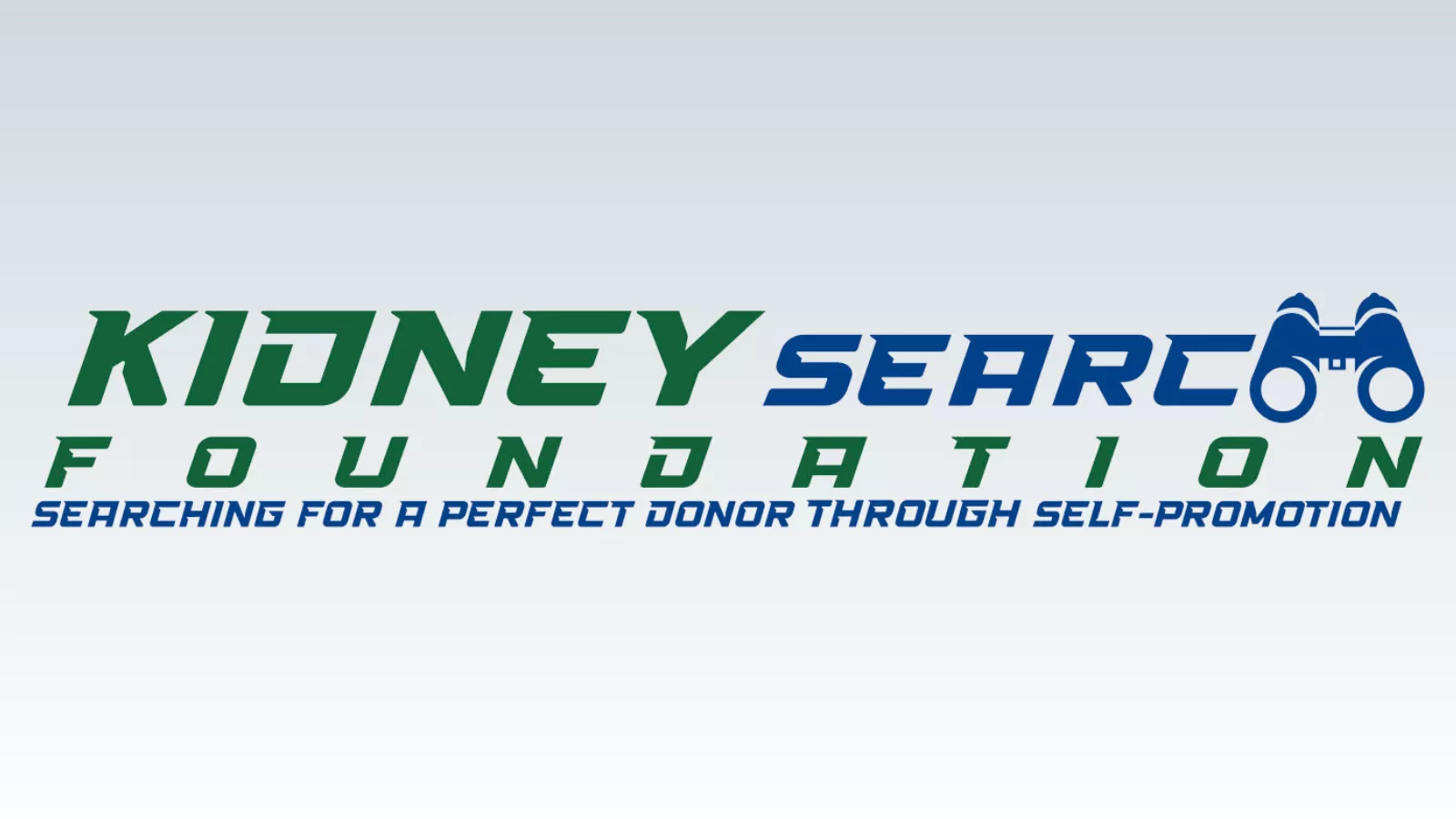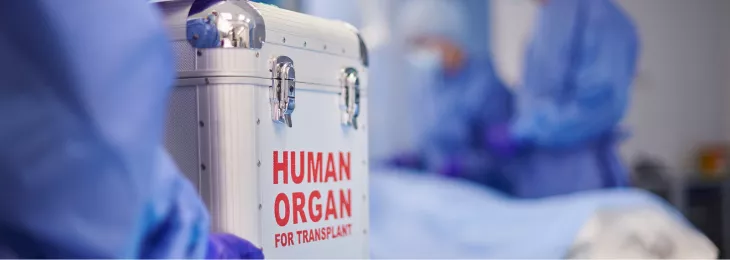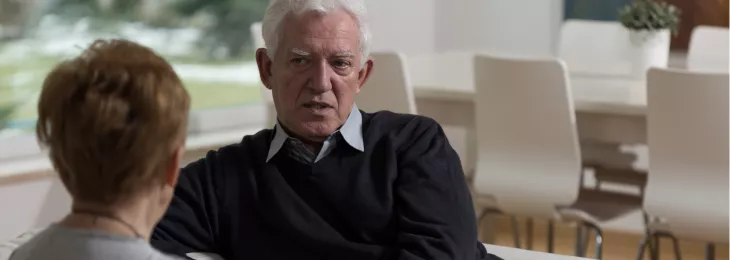
How the Kidney Search Foundation Helps Patients Find Living Kidney Donors
Kidneys from healthy living donors offer the best potential transplant outcomes, but starting and promoting a search for a living donor can feel daunting. Non-profit organization the Kidney Search Foundation aims to simplify that process by providing guidance and promotional resources to help you find the right donor match for you or your loved one.
The Benefits of Living Kidney Donation
For the recipient, living kidney donation offers numerous advantages over receiving a kidney from a deceased donor. These can include:
- Improved transplant success rates. Kidneys from living donors typically function better and last longer than those from deceased donors. Studies show that living donor kidneys can last 15-20 years on average, compared to 10-15 years for deceased donor kidneys.
- Reduced waiting time. Patients on the deceased donor waiting list can wait for several years, often spending a considerable amount of time on dialysis. With a living donor, the transplant can occur much sooner, sometimes within weeks or months.
- Better health outcomes. Transplants from living donors are associated with lower rates of rejection and complications. This can lead to faster recovery times, fewer hospitalizations, and a better overall quality of life.
- Reduction or avoidance of dialysis. Dialysis is a time-consuming and physically taxing process. Receiving a kidney from a living donor can eliminate the need for dialysis or significantly reduce the time spent on it, allowing recipients to lead a more normal and active life.
- Improved longevity. Successful kidney transplants from living donors have been shown to significantly improve the lifespan of recipients compared to those who remain on dialysis or receive a kidney from a deceased donor.

Living kidney donation also provides numerous benefits, both tangible and intangible, to the donor, such as:
- Saving a life. Donating a kidney is a profoundly generous act that can save the life of someone in dire need. Donors often report a deep sense of satisfaction and fulfillment knowing they have made such a significant impact.
- Health monitoring. The process of becoming a donor involves thorough medical evaluations. This comprehensive health screening can identify and address any underlying health issues the donor may not have been aware of.
- Positive role modeling. Living donors serve as powerful role models, demonstrating the profound positive impact that one person can have on another’s life. This can inspire others to consider organ donation or engage in similar acts of kindness.
- Medical follow-up. Post-donation, donors receive ongoing medical follow-up to monitor their health. This continued care ensures any potential health issues are promptly addressed, contributing to the donor’s long-term well-being.
- Higher priority. If a prior kidney donor eventually needs a transplant of their own, they will be given priority and have a shorter wait on the UNOS transplant waitlist.
Challenges of Finding a Living Kidney Donor
Actually finding a living kidney donor, however, is fraught with numerous challenges, both emotional and practical. Individuals and families often face significant hurdles, including:
- Emotional barriers. Asking someone to donate an organ, even to save a life, is an emotionally charged request. Potential donors might fear the surgery, worry about long-term health implications, or be uncertain about their eligibility.
- Awareness and education. Many people are unaware of the need for living donors or the process involved in becoming one. Misinformation and lack of awareness can prevent potential donors from coming forward.
- Compatibility and health requirements. Finding a compatible donor involves extensive testing to ensure the donor’s kidney is a good match for the recipient. Potential donors must also be in good health, which can further narrow the pool of eligible donors.
- Logistical and financial considerations. The donation process requires time off work for both the donor and recipient, as well as potential travel expenses. While the recipient’s insurance typically covers the donor’s medical expenses, there are often additional costs that need to be considered.
How the Kidney Search Foundation Helps
The Kidney Search Foundation plays a crucial role in aiding prospective kidney transplant recipients by providing comprehensive support and resources for designing and promoting their organ donor searches and campaigns. Here’s a detailed look at how the Foundation assists individuals in this critical endeavor.
Personalized Campaign Planning
- Initial consultation. The Foundation offers one-on-one consultations to understand the specific needs and circumstances of the transplant recipient. This personalized approach ensures that the campaign is tailored to maximize effectiveness.
- Strategy development. Based on the consultation, the Foundation helps develop a strategic plan for the donor search. This includes identifying key messages, target audiences, and the most effective channels for outreach.
Educational Resources
- Informational guides. The Foundation provides comprehensive guides that cover all aspects of living kidney donation. These guides include information on the donation process, eligibility criteria, and benefits of living donation.
- Workshops and webinars. Regular workshops and webinars are conducted to educate recipients and their families about living donor kidney transplants. These sessions cover topics like how to approach potential donors, legal and ethical considerations, and success stories to inspire and motivate.
- Support networks. Connecting individuals with others who have undergone similar experiences, fostering a community of shared knowledge and encouragement.
Promotional Materials
- Banners. Eye-catching banners that can be displayed in prominent locations such as community centers, local businesses, and public events to attract attention.
- Car magnets. Custom car magnets that recipients can place on their vehicles to increase visibility while driving around their communities.
- Flyers. Professionally designed flyers that can be distributed in neighborhoods, workplaces, and social gatherings. These flyers include essential information about the recipient’s need, how to get tested as a potential donor, and contact details.
- T-Shirts. Customizable T-shirts with messages promoting the search for a kidney donor. Wearing these shirts at public events, social gatherings, and during everyday activities helps keep the message visible and can spark conversations.
- Videos. Engaging video content that can be shared on social media platforms. These videos can tell the recipient’s story, explain the donation process, and encourage viewers to consider becoming a donor.
Digital and Social Media Support
- Social media campaigns. The Foundation helps recipients set up and manage social media campaigns. This includes creating profiles, writing posts, designing graphics, and planning a content calendar to ensure consistent and impactful messaging.
- Website assistance. For recipients who want a dedicated online presence, the Foundation offers assistance in creating personal websites. These websites can include the recipient’s story, updates on their search, donor registration information, and a blog to keep supporters engaged.
- Email campaigns. The Foundation provides tools and templates for email campaigns to reach out to potential donors and keep supporters informed about the progress of the search.
Community Engagement
- Event planning. The Foundation assists in planning and organizing local events to raise awareness. These events can include fundraisers, awareness walks, and informational sessions.
- Media outreach. Tips and support for reaching out to local media outlets to share the recipient’s story. Getting coverage in newspapers, on radio, or on local TV can significantly boost the reach of the donor search campaign.
- Advocacy and networking. Connecting recipients with local advocacy groups, transplant centers, and other networks that can provide additional support and resources.
Online Profiles, Success Stories, and Testimonials
The Kidney Search Foundation’s website features profiles of individuals seeking donors. These profiles allow potential donors to learn about the people in need, fostering a personal connection and potentially increasing the likelihood of finding a match.
The website also highlights stories of triumph and shares testimonials of individuals who have successfully found donors through their campaigns. These stories provide hope and practical insights into what strategies worked for others.
The Foundation also offers mentorship programs, connecting prospective recipients with those who have already gone through the process. These mentors can offer valuable advice, emotional support, and encouragement throughout what can be an unsettling journey.
Reducing the Wait Time
With the help of the Kidney Search Foundation, the daunting task of finding a living donor becomes more manageable. Their resources and support can significantly reduce the time spent on waiting lists and improve the chances of a successful transplant, leading to better health outcomes and a higher quality of life for recipients.
While the process of finding a living kidney donor can be challenging, organizations like the Kidney Search Foundation play a crucial role in simplifying and supporting the search. By providing educational resources, promotional materials, and personalized guidance, they help individuals and families navigate this difficult journey with greater confidence and hope.



